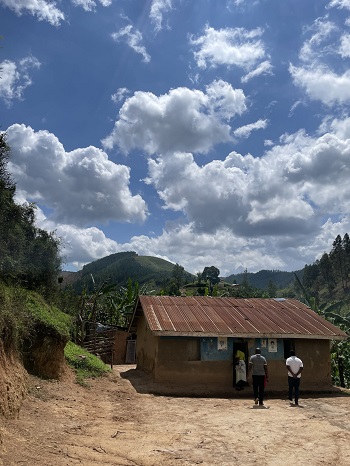
Before Dr. Radhika Sundararajan earned her medical degree and began her work in emergency medicine, she discovered her passion for understanding social and cultural norms across the globe and obtained her PhD in anthropology.
Now, she is committed to using her knowledge and experience to keep people from impoverished nations out of the hospital by bringing preventive testing and care to those who may not otherwise have access to it or trust that care.
“We know what works and how to deliver it,” said Dr. Sundararajan, “But we need to remove the stigma of distrust and push care to where the people already are.”
Her work is already making a significant impact in India and Uganda.
Prevalence of Gestational Diabetes in India
Globally, one in 10 pregnant women suffer from gestational diabetes, yet only 2% of pregnant women in India are screened for it.
In many cases, these women haven’t heard of gestational diabetes or the proactive screenings to get care for the illness. In other cases, access to the testing facilities were difficult at best. And because Indian women do not fit the typical criteria for risk of diabetes - older in age, higher BMI, high fat/high sugar diets – doctors there often don’t push a required screening.
To get a better understanding of the prevalence of gestational diabetes in India, her team went door-to-door to educate pregnant women on the risks of gestational diabetes and the option to test for it. Of all their encounters, 90% of the pregnant woman they spoke with took the test and 14% of those in the initial sample tested positive. That number rose to 30% when they expanded their outreach to other communities.
“This is an understudied population. Their risk factors for gestational diabetes are different than what we expect,” said Dr. Sundararajan. “Now we have the evidence that this is an issue for this population so we can better educate the physicians on why screening and follow-up care is important.”
Healers Take on HIV Screening in Uganda
Dr. Sundararajan has applied a similar strategy to studying HIV screenings in Uganda.
Despite an average of 5% of Ugandans testing positive for HIV, most living in rural villages have never been tested for the disease because these types of screenings are not typically administered by their trusted sources for healthcare: herbalists and healers.
To change this, Dr. Sundararajan’s team went directly to the healers to educate them on HIV and provide them with self-administered tests for screening. 100% of the people who were given a test took it. And from that, 4% were identified as being positive for HIV.
They’ve also made their mark with healers on getting pre- and post-natal HIV testing for pregnant women. But perhaps most remarkable, is that by providing the healers with the information and the tools, 85% of the new cases have stuck with their care.
Why This Matters
“This is one of the failures of global health. People aren’t coming to you, so we’re going to the places people already know and trust for their care,” says Dr. Sundararajan.
“You have to tailor it to what people find desirable and then map that to what’s possible,” she adds.
For more information about Dr. Sundararajan's work, please visit her lab site.
Dr. Radhika Sundararajan is a board-certified emergency medicine physician and an assistant professor of medicine at Weill Cornell Medicine. Dr. Sundararajan is a global health researcher who studies barriers to healthcare engagement in sub-Saharan Africa, specifically among people who prefer 'traditional' medicine. Dr. Sundararajan earned her medical degree at New York University School of Medicine and completed her residency training in emergency medicine at Brigham and Women’s/Massachusetts General Hospital program. She practices emergency medicine at NewYork-Presbyterian Hospital-Weill Cornell Medical Center and NewYork-Presbyterian Lower Manhattan Hospital. She is currently Principal Investigator for an R01 award to conduct an effectiveness-implementation cluster randomized trial to evaluate if traditional healers can provide HIV self-testing and psychosocial support to improve the entire HIV continuum of care. In addition, she is co-PI on an R01 to evaluate the effectiveness of community health workers to improve screening for gestational and post-partum diabetes among pregnant people in Indian slum communities.


